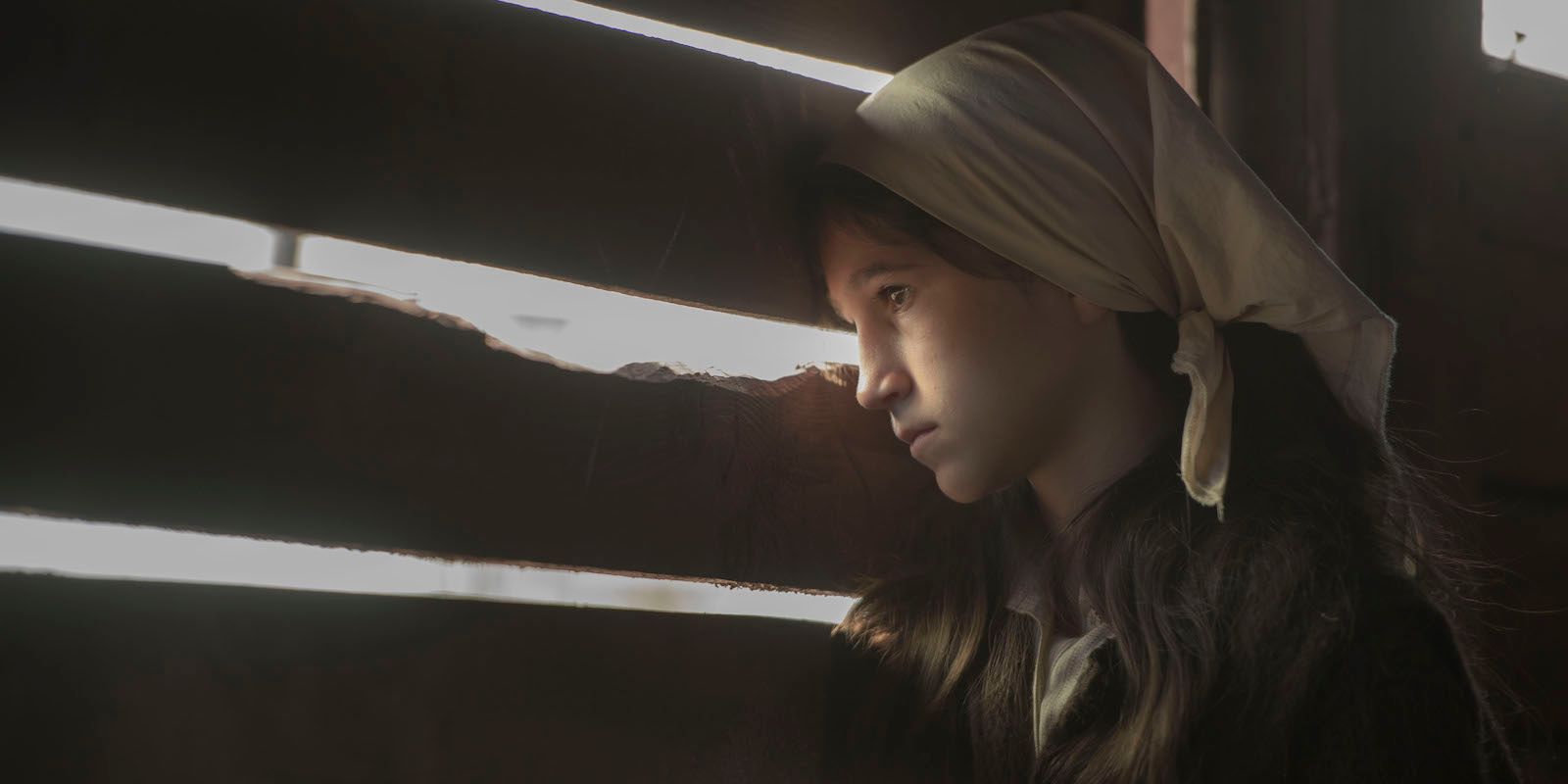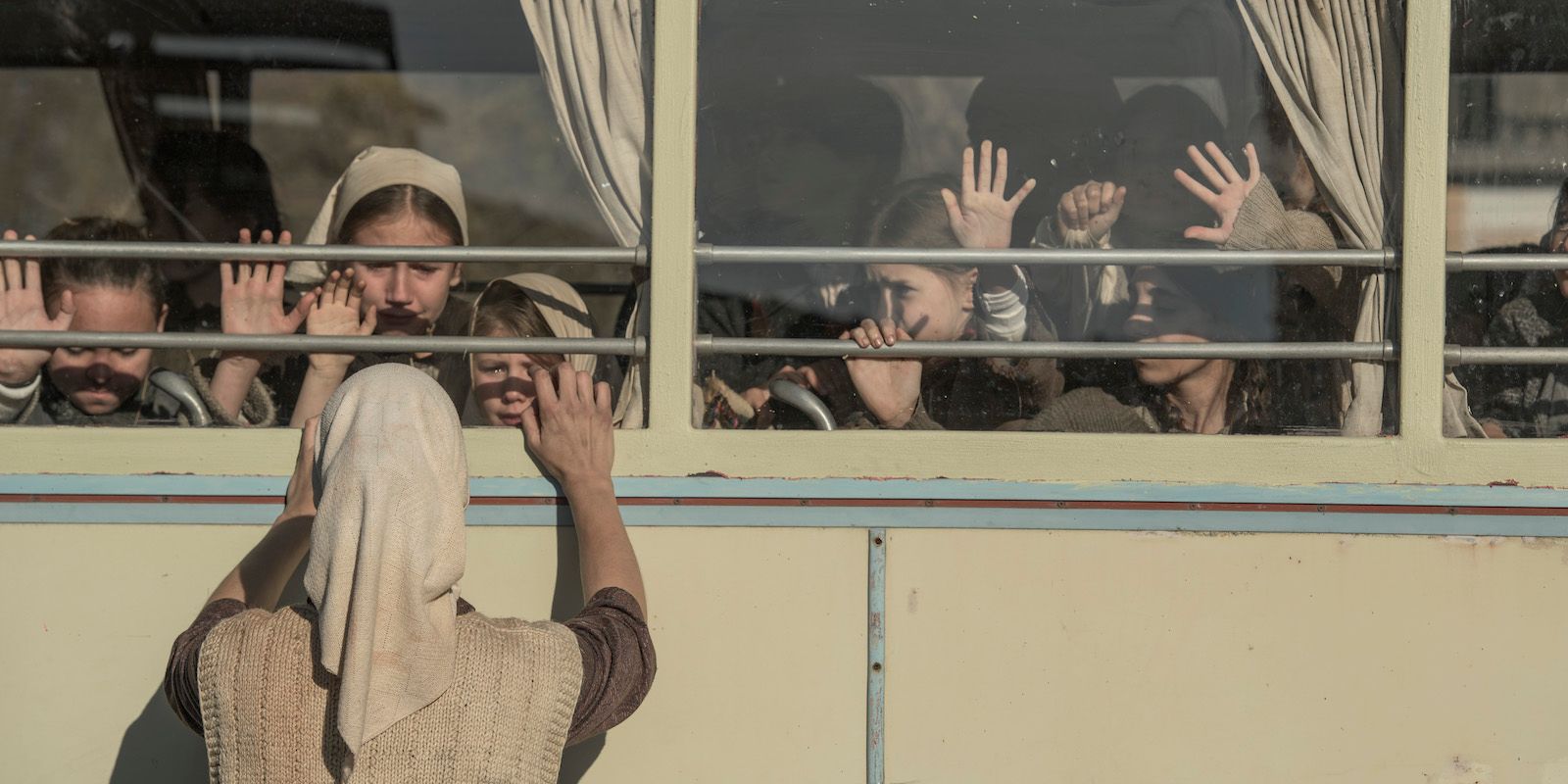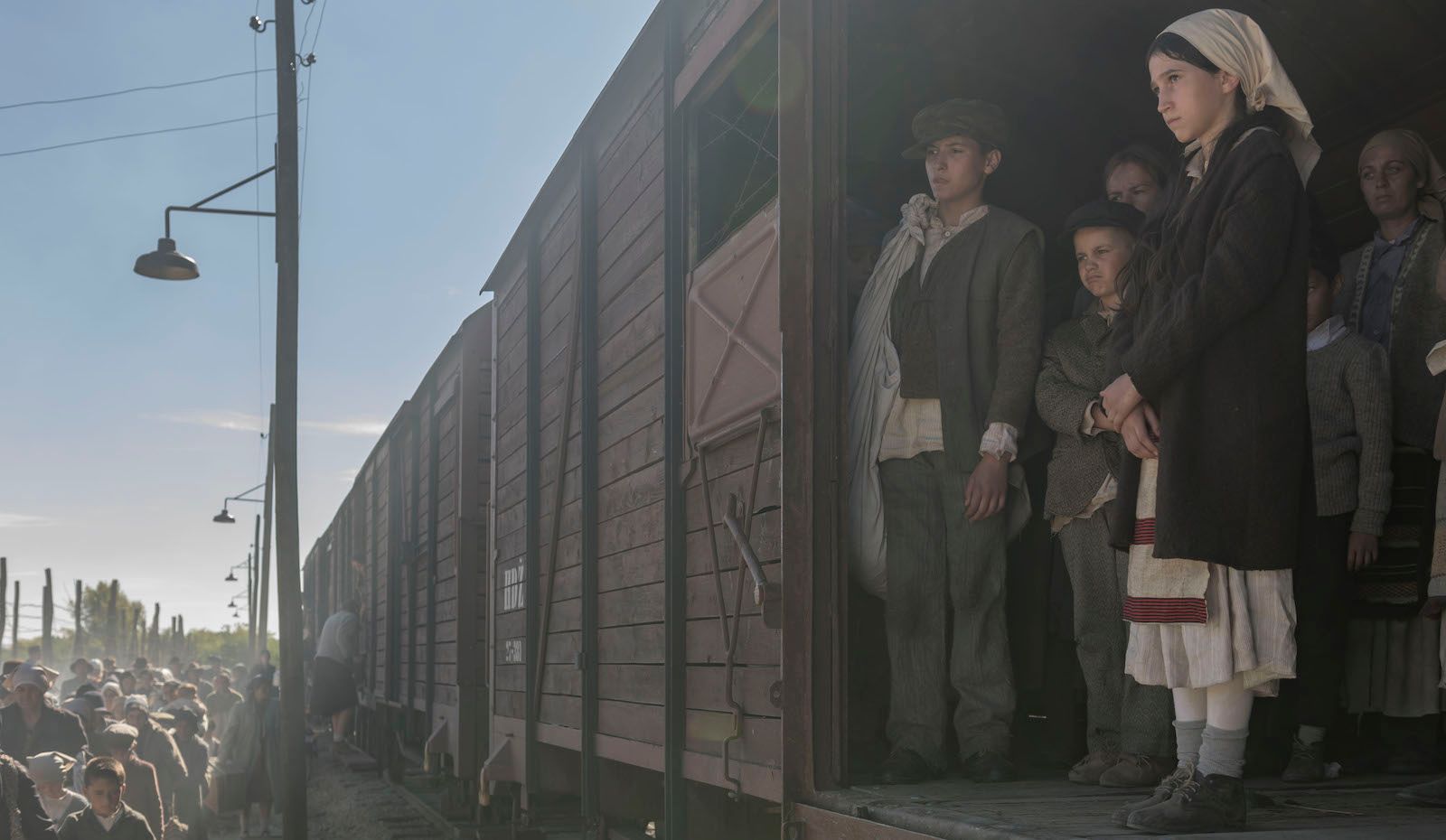At this point, it's a tried-and-true adage that if a filmmaker wants to receive awards attention, they should make a movie about the Holocaust. Undeniably, there have been some outstanding films about the Holocaust over the years, such as Schindler’s List and The Pianist, that interrogate and thoughtfully examine the tragedy of this historical event. But that leaves many, many more that seem to exist for cynical reasons. Unfortunately, despite being Serbia’s official selection for the Oscar’s International Film race this year, Dara of Jasenovac falls into the latter category.
The film is told largely from the perspective of the title character, a 10-year-old Serbian girl named Dara Ilić (Biljana Čekić), who along with her mother and two brothers is taken to a concentration camp complex called Jasenovac in Croatia during World War II. Unlike the other concentration camps across Europe that were run by Germans, Jasenovac was run by Croatia's fascist Ustaše government, and while they imprisoned and murdered Jews and Roma people there, they also followed their own agenda, imprisoning and murdering ethnic Serbs. The film portrays the overwhelming brutality of the camps and the wanton violence the Ustaše engaged in.
Dara initially doesn’t understand why her family is being forced to leave their home, but the terrible nature of her predicament becomes increasingly clear to her as she witnesses terrible atrocities by both the Ustaše and members of the Catholic Church. In short order, she loses her mother, Nada (Anja Stanic Ilić), and her 12-year-old brother, Jovo (Marko Pipić), leaving her responsible for the care of her 2-year-old brother, Bude (Luka, Jakov and Simon Šaranović). As things become increasingly difficult, her mission to keep Bude safe, alive and with her gives her purpose amidst the horrors she faces. Meanwhile, in a nearby camp, Dara’s father, Mile (Zlatan Vidović), who was taken before the rest of the family, is still alive and been put to work getting rid of the unending bodies of those who’ve died in the camps.
Although it's a work of fiction, Dara of Jasenovac is based on survivors’ first-hand accounts as well as court transcripts following the war’s conclusion. But while this gives the filmmakers the cover of "truth," the simplistic characterizations of the film’s heroes and villains makes the story feel one dimensional. Jasenovac was known for being especially barbaric, with officials who killed prisoners at close range with mallets and knives, but the movie is almost comical in its depiction of the violence in the camps. Of course, no one goes into a Holocaust movie expecting to avoid watching the depiction of horrendous atrocities, but Dara of Jasanovec's depictions strain credulity.
One over-the-top set piece involving a deadly game of musical chairs is especially hard to forget, not just for the brutality of the scenario but for the Ustaše officials’ reactions to it. The game, where the prisoner who doesn’t find a seat when the music stops has their throat slit, is presented as entertainment during a dinner in honor of a visiting Nazi. Throughout the carnage, the Croatian fascists are seen eating comfortably while the camp commander’s sister, Nada (Alisa Radaković), is so turned on, she pulls a man into a car so she can have sex while watching the ongoing slaughter through the back window. In fact, the only ones who seem at all fazed by what they're witnessing are the visiting Nazis, which has the sickening effect of making the Nazis momentarily sympathetic.
The camp officers’ unrelenting evil stands in sharp contrast to Dara’s saintly innocence. Yet, while Čekić gives a naturalistic performance, there’s no real depth to her character. Dara tolerates the weight of everything that’s happening with quiet acceptance, while sacrificing everything for her little brother. Still, none of this conveys anything especially substantive about Jasenovac or the circumstances that gave rise to it.
The most interesting thing about Dara of Jasenovac is that it brings attention to the little-known camps at Jasenovac. But this is a piece of trivia, not a movie, and the movie doesn’t have anything especially substantive to say about the historical significance of these camps. Instead, the exaggerated evil of the Croatian fascists and the angelic good of Dara may signal an agenda borne out of current animosities between Serbia and Croatia. As a result, the film is a tragic story with no nuance or insight beyond the horror.
Dara of Jasenovac, directed by Predrag Peter Antonijević, written by Nataša Drakulić and starring Biljana Čekić, Anja Stanic Ilić, Zlatan Vidović, Marko Janketić, Alisa Radaković, Igor Dordević and Bogdan Bogdanović, is available in select theaters on Friday, Feb. 5.



